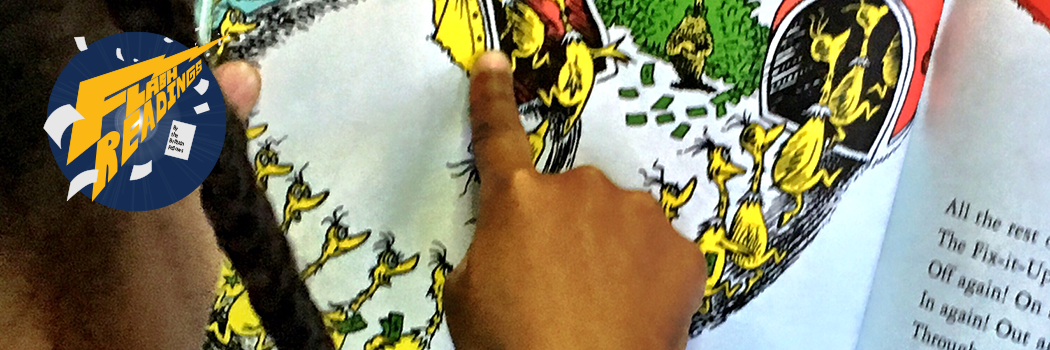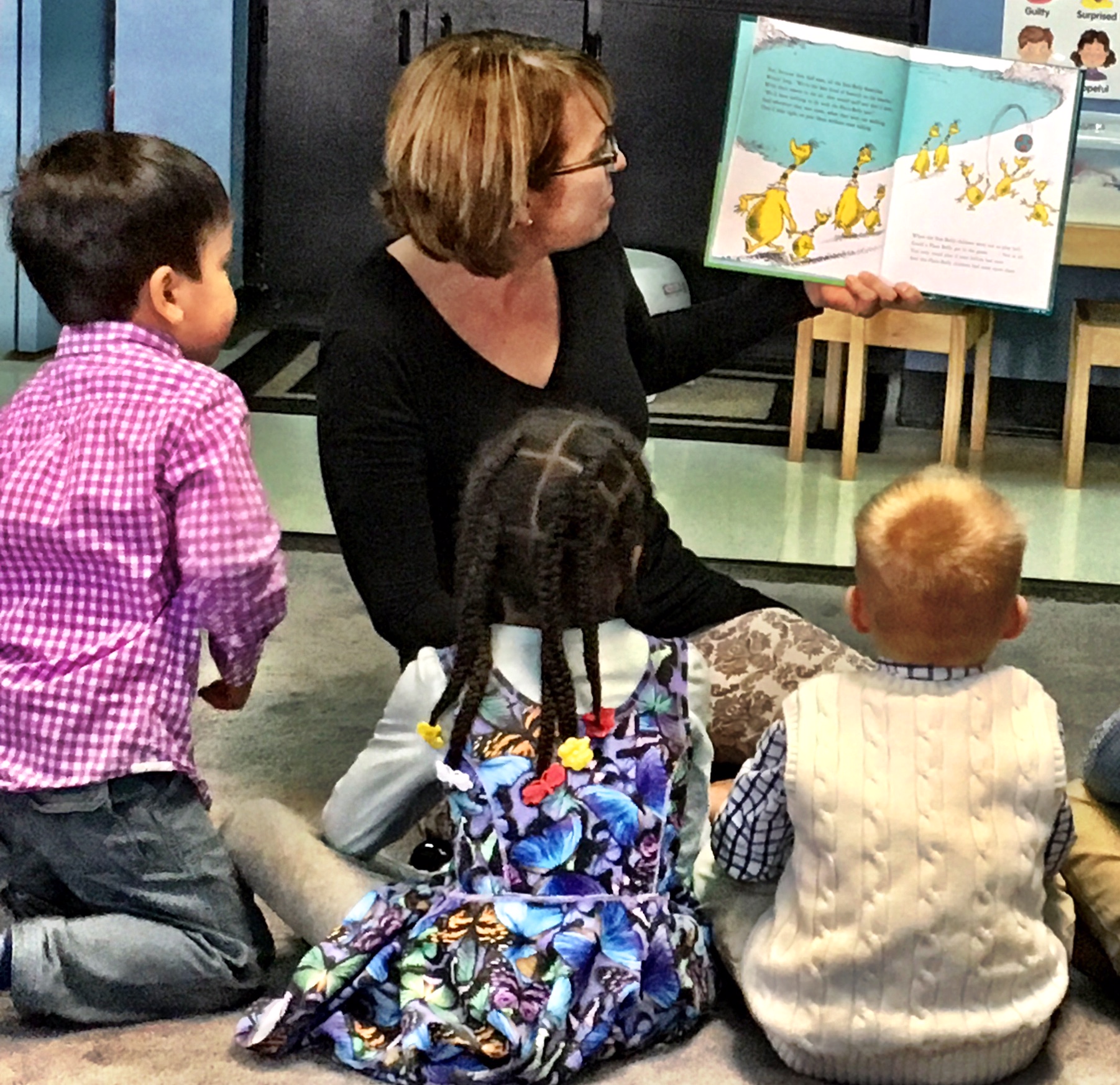
The third episode of Flash Readings with the Brittain Fellows is “A Safe Imaginative Space,” featuring Ellen Stockstill’s interview with Sarah Higinbotham about the meaningful ways that children of many ages respond to Dr. Seuss’s “The Sneetches” (1961) and her work on Human Rights in Children’s Literature: Imagination and the Narrative of Law—just out from Oxford University Press (2015). Higinbotham discusses how Dr. Seuss’s absurd story and illustrations offer kids “a safe imaginative space” to think about big issues like human rights, human dignity, and their responsibility for others. In particular, she highlights a scene from the story that frequently makes children laugh as they witness the “arbitrary and foolish” nature of discrimination. The episode features Higinbotham reading to a group of siblings at Foreverfamily, a nonprofit in Atlanta that supports children with an incarcerated parent and with whom Higinbotham has worked for many years.
Flash Readings Episode 3: “A Safe Imaginative Space”
The podcast can be playing using the embedded player above or downloaded as an mp3 file.
Works Cited
Convention on the Rights of the Child. United Nations Human Rights Office of the High Commissioner. 1989.
Dr. Seuss. The Sneetches and Other Stories. New York: Random House, 1961.
Todres, Jonathan and Sarah Higinbotham. Human Rights in Children’s Literature: Imagination and the Narrative of Law. Oxford: Oxford UP, 2015.
———. “A Person’s a Person: Children’s Rights in Children’s Literature.” Columbia Human Rights Law Review 45.1 (2013): 1–56.

